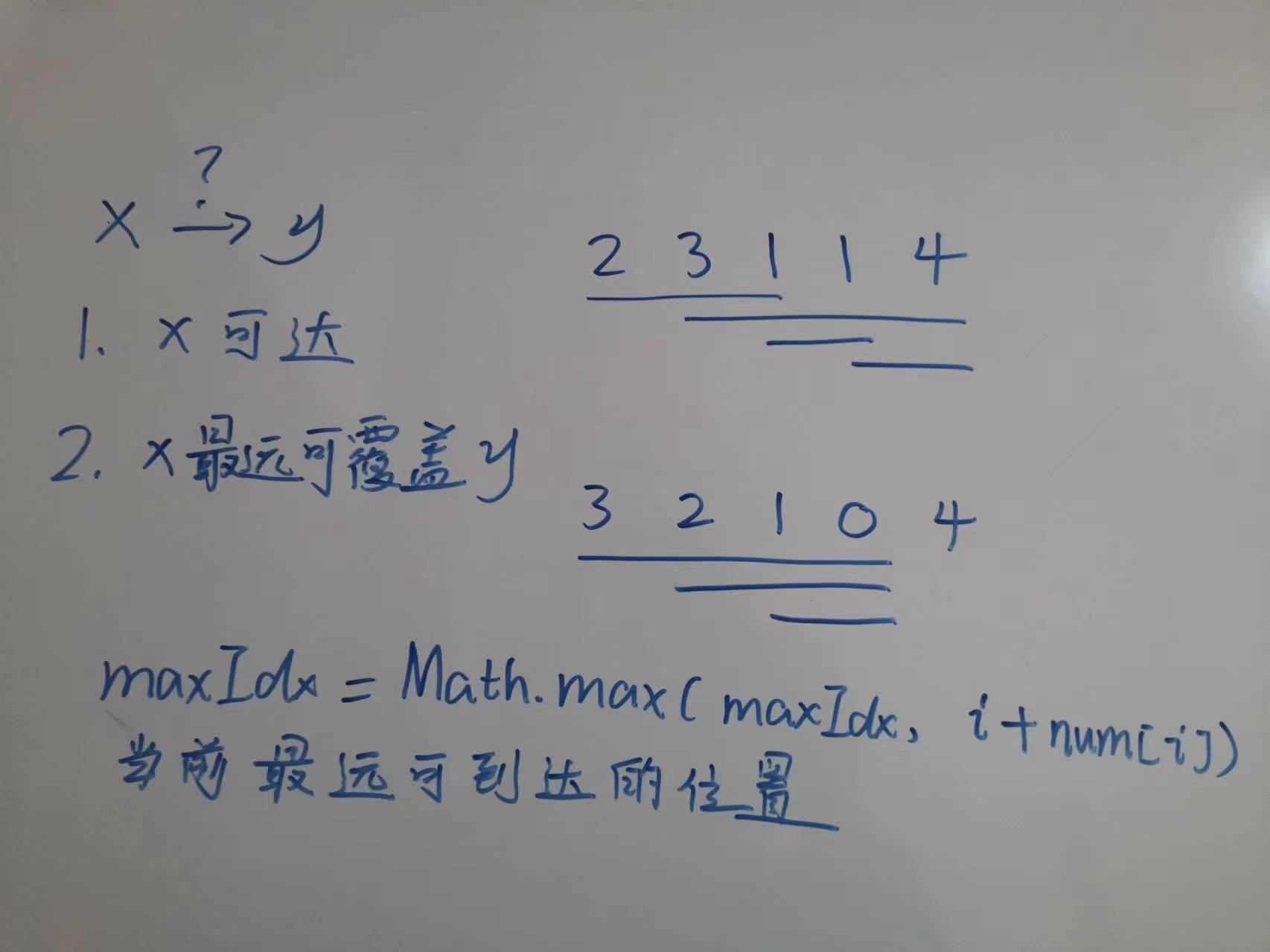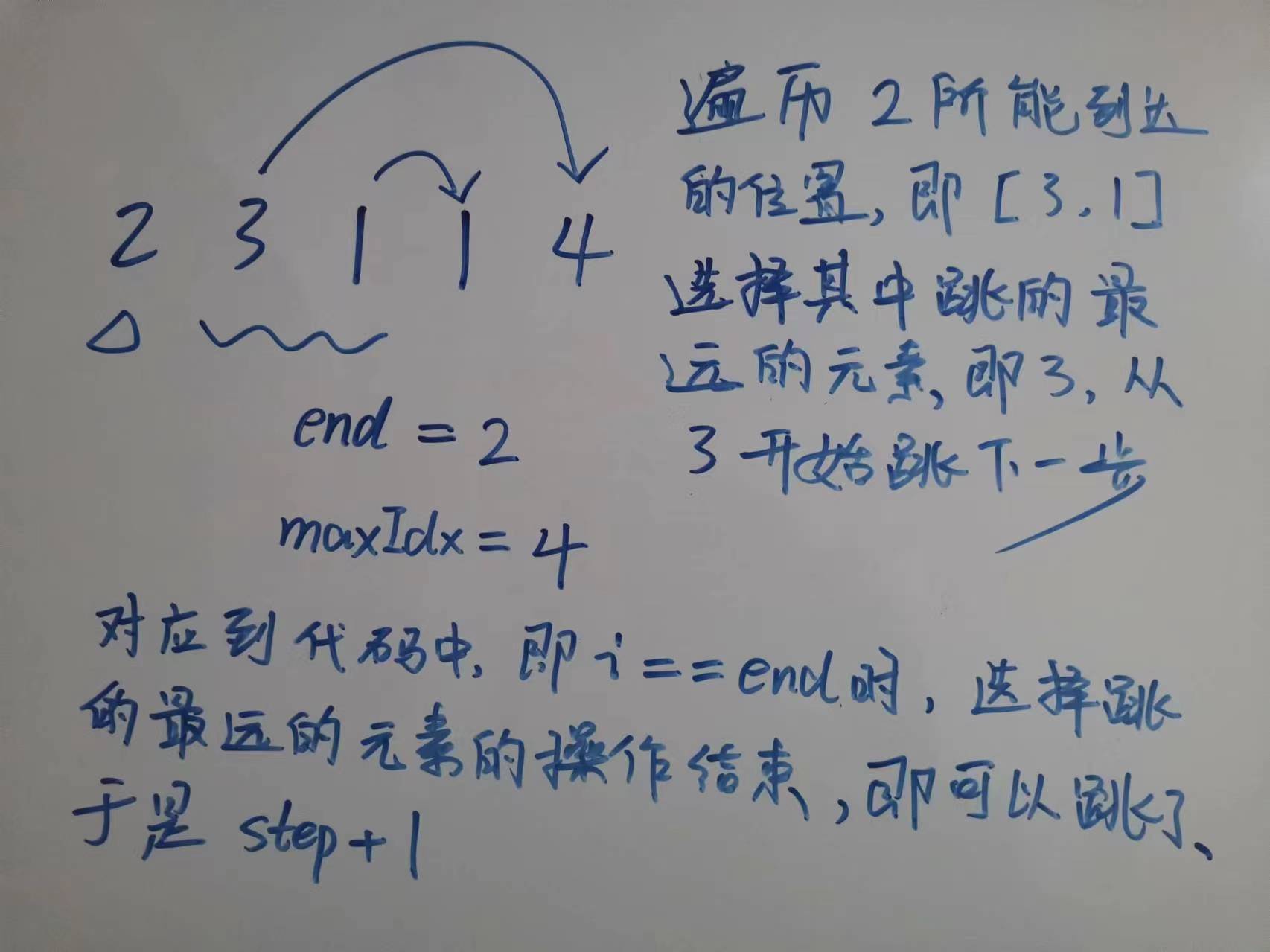122. 买卖股票的最佳时机 II
问题本质是在做决策,所以可以使用回溯算法来暴力搜索,问题就是会超时。
// 回溯算法
class Solution {
int max = 0;
public int maxProfit(int[] prices) {
backtrace(prices, 0, 0, 0);
return max;
}
/**
*
* @param prices 股价表
* @param status 持有状态,0 未持有,1 持有
* @param currProfit 当前利润
* @param day 天数
*/
public void backtrace(int[] prices, int status, int currProfit, int day) {
if (day == prices.length) {
// 决策树到头了,开始统计结果
if (currProfit > max) {
max = currProfit;
}
return;
}
// 不操作
backtrace(prices, status, currProfit, day + 1);
// 操作
if (status == 0) {
// 买入
backtrace(prices, 1, currProfit - prices[day], day + 1);
} else {
// 卖出
backtrace(prices, 0, currProfit + prices[day], day + 1);
}
}
}贪心算法的思想就是选取当下的最优解,并期望得到全局的最优解。在这里就是第一天买,第二天买,如果是正收益的话。
// 贪心算法
class Solution {
public int maxProfit(int[] prices) {
int profit = 0;
for (int i = 1; i < prices.length; i++) {
if (prices[i] - prices[i - 1] > 0) {
profit += prices[i] - prices[i - 1];
}
}
return profit;
}
}55. 跳跃游戏
也是一个决策问题,可以考虑回溯,不出意外的话又是超时。
class Solution {
// 暴力回溯
boolean ok = false;
public boolean canJump(int[] nums) {
backtrace(nums, 0);
return ok;
}
/**
* @param nums 数组
* @param index 到达的位置
*/
public void backtrace(int[] nums, int index) {
if (index >= nums.length) return;
if (index == nums.length - 1) {
// 能访问到最后一个元素
ok = true;
return;
}
for (int i = 1; i <= nums[index]; i++) {
// 剪枝
if (ok) return;
backtrace(nums, index + i);
}
}
}先考虑一下,位置 x 如何才能到达位置 y?有两个条件,一是 x 是可到达的,二是 x 最远能到达的位置覆盖了 y。因此可以遍历数组,并维护一个当前能够到达的最远位置,如果当前遍历的元素超过了这个位置,说明是不可到达的,否则更新这个最远位置,并判断是否覆盖了最后一个元素,如果覆盖了,则说明能到达。

class Solution {
public boolean canJump2(int[] nums) {
// 当前最远到达的位置
int maxIndex = 0;
for (int i = 0; i < nums.length; i++) {
// i 超出了最远到达的位置,说明 i 不可达
if (i > maxIndex) return false;
// 更新最远可以到达的下标
maxIndex = Math.max(maxIndex, i + nums[i]);
// 如果覆盖了最后的元素,说明可达
if (maxIndex >= nums.length - 1) return true;
}
return false;
}
}45. 跳跃游戏 II
决策问题,可以使用回溯暴力搜索,然后等着超时。
class Solution {
int minCount;
public int jump(int[] nums) {
minCount = nums.length - 1;
backtrace(nums, 0, 0);
return minCount;
}
public void backtrace(int[] nums, int index, int currCount) {
if (index >= nums.length) return;
if (index == nums.length - 1) {
minCount = Math.min(minCount, currCount);
return;
}
for (int i = 1; i <= nums[index]; i++) {
backtrace(nums, index + i, currCount + 1);
}
}
}贪心,这个贪心策略是选择当前可跳跃范围内中能跳的更远的位置。

class Solution {
public int jump(int[] nums) {
// 上一步可以到达的最远位置
int end = 0;
// 下一步可以到达的最远位置
int maxIndex = 0;
int step = 0;
for (int i = 0; i < nums.length - 1; i++) {
// 维护下一步可以到达的最远位置
maxIndex = Math.max(maxIndex, i + nums[i]);
// 上一步最远就到 end 了,遍历到 end 说明这个范围内的下一次能到达的最远位置已经确定了,更新 end,并步数 +1
if (i == end) {
end = maxIndex;
step++;
}
}
return step;
}
}